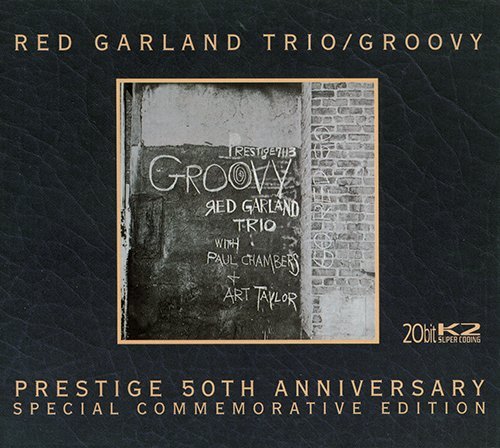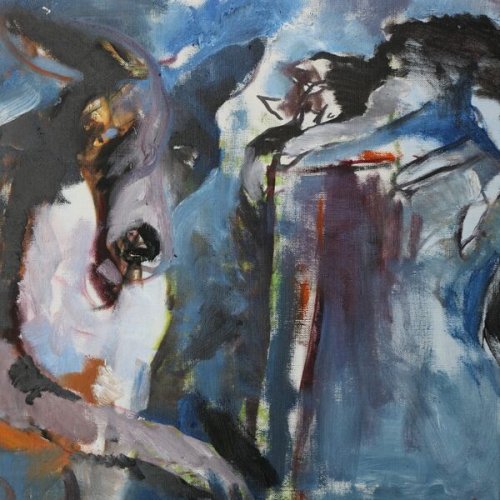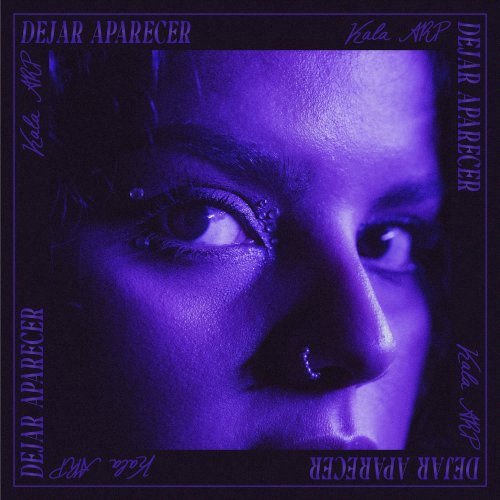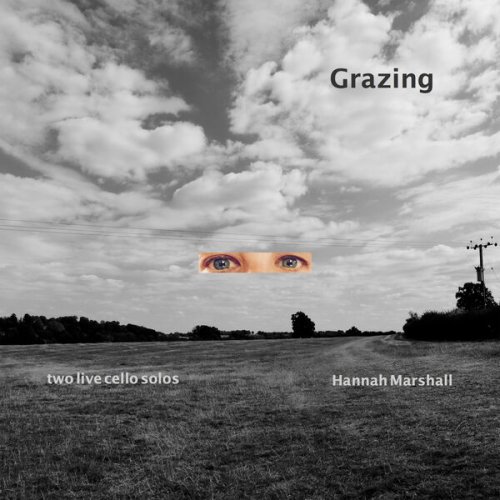Red Garland Trio - Groovy (1957/1999)

Artist: Red Garland Trio
Title: Groovy
Year Of Release: 1999
Label: Prestige/Fantasy (K2)
Genre: Jazz, Hard Bop
Quality: FLAC (tracks+.cue, log, Scans)
Total Time: 40:02
Total Size: 220 MB
WebSite: Album Preview
Tracklist:Title: Groovy
Year Of Release: 1999
Label: Prestige/Fantasy (K2)
Genre: Jazz, Hard Bop
Quality: FLAC (tracks+.cue, log, Scans)
Total Time: 40:02
Total Size: 220 MB
WebSite: Album Preview
01. C-Jam Blues (Ellington) (8:18)
02. Gone Again (Lewis-Hamner-Hampton) (6:42)
03. Will You Still Be Mine (Dennis-Adair) (4:40)
04. Willow Weep for Me (Ronell) (9:32)
05. What Can I Say (After I Say I'm Sorry)? (Donaldson-Lyman) (7:10)
06. Hey Now (Garland) (3:40)
Red Garland's third recording as a leader has him playing very well, somewhat energetic and more inclusive in his direction to span the mainstream jazz palate beyond the cool exterior he emanates. The title might be a bit deceptive, for this is not a project where soul-jazz or early boogaloo influences turned jazzmen into groovemeisters -- it's a swinging groove. With bassist Paul Chambers and drummer Art Taylor, Garland has all the support he needs to wing it in a variety of directions. Recorded in that most legendary year of jazz, 1957, Garland is coming into his own in a more confident way, buoyed by his association at the time with Miles Davis. Chambers is flawless in his support role, and on this recording deserves a close listen, especially for students of the acoustic upright. They immediately dig in on the opener "C Jam Blues," with Garland at his heartiest during his bridge solo, they agree in the affirmative during the entirety of the hard bop take of "Will You Still Be Mine?," and repeat but modify the melody à la "Cool Blues" in an adept display of artistry for "Hey Now." Of course Garland has to play a ballad or two, as on "Willow Weep for Me," luscious with chord sequences, and really reflects the influence of Erroll Garner in that chiming, two-handed sustenato style for Garner's "Gone Again." It is said that by the third recording, most musicians should have their style down pat and begin attempting to take the music to a higher level. You really hear that in this recording, which was a springboard to making Red Garland one of the most revered and respected jazz pianists of the modern era.


![Marvin Birungi - Soul Vaxnation (2026) [Hi-Res] Marvin Birungi - Soul Vaxnation (2026) [Hi-Res]](https://www.dibpic.com/uploads/posts/2026-02/1771660075_500x500.jpg)
![Hyper Elastic Jinx - We Vote Force Majeure (2026) [Hi-Res] Hyper Elastic Jinx - We Vote Force Majeure (2026) [Hi-Res]](https://www.dibpic.com/uploads/posts/2026-02/1771485115_cover.jpg)


![Stephen Parisi Jr. - Buddy! (2026) [Hi-Res] Stephen Parisi Jr. - Buddy! (2026) [Hi-Res]](https://img.israbox.com/img/2026-02/20/fvrxk8mfalmhx2kjnbwaetofm.jpg)
![Art Pepper - Everything Happens To Me: 1959 - Live At The Cellar (2026) [Hi-Res] Art Pepper - Everything Happens To Me: 1959 - Live At The Cellar (2026) [Hi-Res]](https://www.dibpic.com/uploads/posts/2026-02/1771405170_fcwg7jmt6mou1_600.jpg)
![Freysteinn - Thoughts (2026) [Hi-Res] Freysteinn - Thoughts (2026) [Hi-Res]](https://img.israbox.com/img/2026-02/20/v51kb7e32wkdjbts45lwsh18u.jpg)